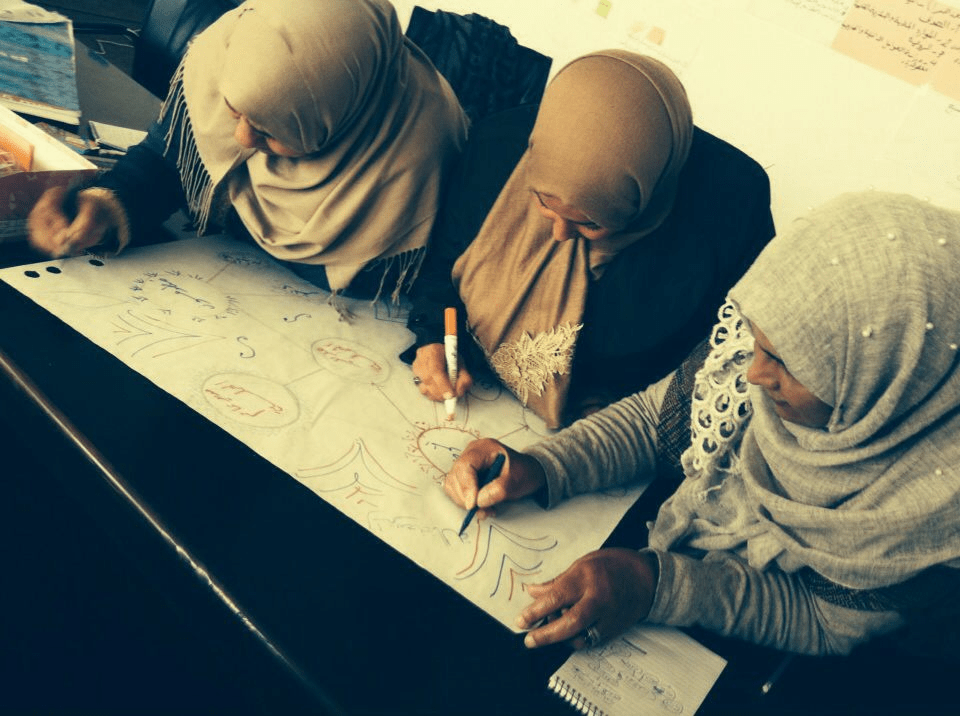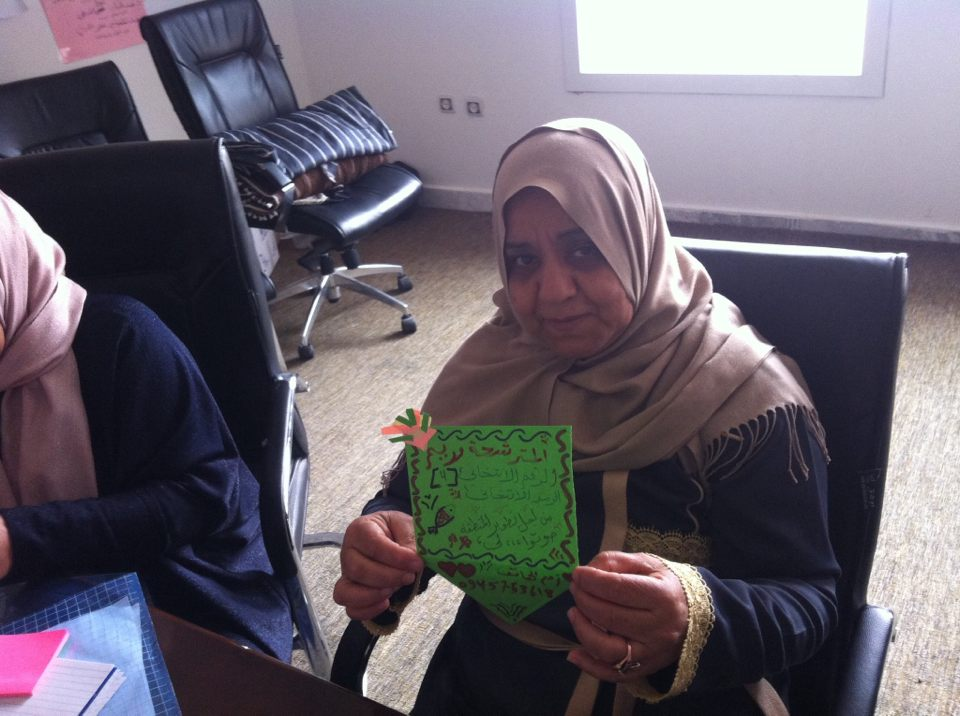Libyan Women Make Their Voices Heard in Local Government

As Libya’s latest civil war enters its third month, women throughout the country are claiming their seats in local government and making their voices heard. IRI is working to support these women along the way.
While women constitute half of Libya’s population, they represent the largest marginalized population, in a society that remains largely conservative and patriarchal. Of primary concern to Libya’s ability to successfully transition to inclusive democracy is the low rate of political participation among women and their minimal representation in decision-making positions, both elected and appointed.
Women have struggled to gain a foothold in the country’s political sphere both at the national and municipal level: the 2014 election in Libya saw only 30 out of 188 (16 percent) available seats go to women; there are only 21 women members of the Libyan House of Representatives; and no municipal council in the country has women councilors in excess of the one-seat quota. The low rate of representation among women hinders Libya’s political transition and efforts to build democratic institutions.
The barriers to the inclusion of women are many: patriarchal and cultural norms that are not supportive of women’s engagement in political life; an associated absence of support systems needed for the pursuit of political leadership roles; confidence barriers that dissuade women from playing leadership roles in politics; and a disconnect between potential women candidates and the electorate.
As Libya undertakes the difficult process of democratization at the local and national level, the inclusion of women presents a particularly formidable challenge. Existing and potential future quota legislation cannot be a means to an end in itself; more is needed to enhance and ensure women’s political participation and representation in decision-making processes, and to change the overall perception of women’s role in public, political life.
IRI supports Libya’s transition into a democratic and inclusive nation by strengthening the ability of women to assume participatory roles in decision-making. With funding from the U.S. Department of State Bureau of Near Eastern Affairs, Office of Assistance Coordination, IRI works to increase the capacity of women to effectively compete for public office and engage in politics in their communities, and by addressing the overall perception and visibility of women in political life.
In advance of the first tranche of municipal government elections, IRI conducted candidate and campaign staff trainings for women in 13 municipalities throughout the country. Overall, 11 women who participated in the in-country campaign trainings ran for elected office. Of those 11, three candidates won seats in Al-Qal’a, Zuwarah and Ghadames municipal councils.
In the small town of Al-Qal’a, southwest of Tripoli, IRI trainee Maryam Grada received almost 800 votes, earning her very well-deserved women’s seat in the Municipality of Al-Qal’a. Maryam, born in the 1960s, worked as an educator and headmistress in a public elementary school before turning to political activism. As a single mother, Maryam struggled to claim a respectable spot in society, much more at the decision-making table. Maryam’s story became an inspiration for vulnerable groups in their fight for their right for representation locally and she has promised to represent their interests in her new role on the Municipal Council.
In her campaign for office, Maryam utilized the skills she learned in IRI’s three-day workshop, which targeted five women who were selected as part of an open call for women interested in running for political office. The course tackled topics such as campaign management, communication, coalition building and advocacy. The female candidates had the opportunity to share and collaborate on ideas, challenges, past experiences and stories about their political activism, all in an effort to help them engage more effectively with voters.

All five participants committed to running for the April Municipal Council Elections in hopes of obtaining a seat amongst the male-dominated decision-makers in Al-Qal’a and thus advancing the representation of women in the small town. The female trainees turned municipality candidates (Maqboulah Saed, Lotfia Elkhaneb, Khadija Hetwish, Sarah Alkouni and Maryam Mohammed Grada) were a refreshing addition to the all-male candidates list. While the competition for the women’s seat was tight, it is a sign of robust women’s interest in local politics. Over time, IRI hopes to support women to be competitive outside of the gender quota and to be included on party lists for the general election.
This work is essential in addressing Libya’s marginalization challenges. According to a recent IRI poll measuring public perceptions of municipal governance across Libya in 15 municipalities, there remain significant gaps in women’s knowledge of local political processes. A plurality (45 percent) of women in Tripoli Center did not know if their area had a municipal council or not. A majority of Benghazi and Sabha residents stated that there is a municipal council in their area, but women in Sabha were much more likely than men, by a margin, to not know if their area had a municipal council or not. Also, among the women who stated that there is a municipal council in their area, a plurality of them (47 percent) in Tripoli Center did not know whether any of the municipal council members were women. In Benghazi, women were evenly divided, with 38 percent each responding negative or positive to this question.
Although many challenges remain for women in Al-Qal’a and all of Libya, IRI is working to make these challenges lesser, and resources greater. Slowly but surely, women are working together to create more gender-balanced authoritative units in the country, where decision-makers are able to empathize and respond to their constituents’ needs.
Top